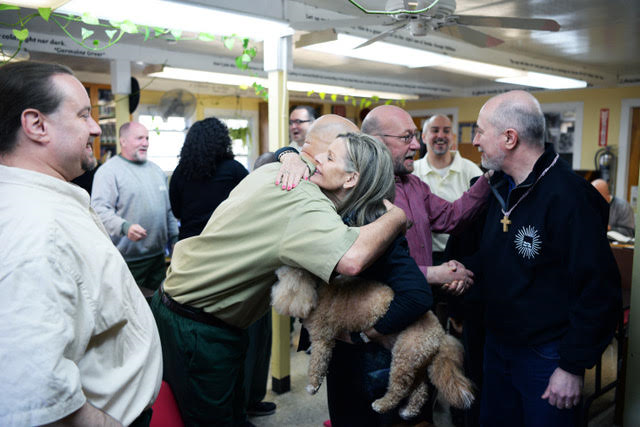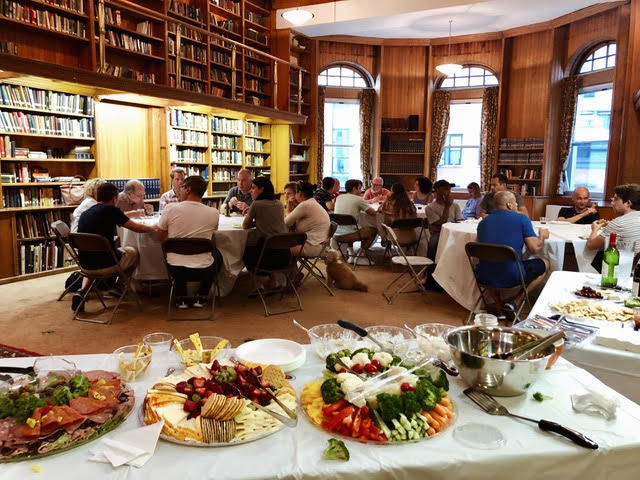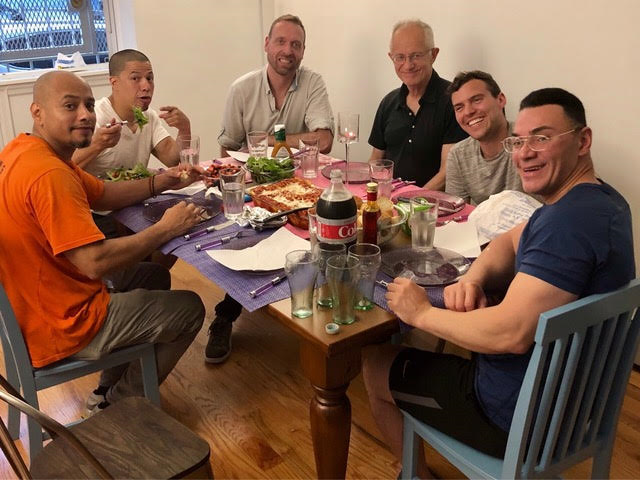The number of incarcerated individuals in our country has reached a staggering level, and the environment behind the walls of our jails and prisons provides little in the way of rehabilitation. It often offers the opposite: hostility, aggression, isolation, and fear. Worse still, when these individuals finish serving their time, they encounter countless obstacles and acts of discrimination in the academic and professional worlds. This creates a dismal cycle of poverty and recidivism.
It was these systemic failings that inspired the creation of the Thrive For Life Prison Project, whose mission it is to create opportunities for spiritual development and provide educational resources for incarcerated and formerly incarcerated men and women while partnering with local universities and employers.

Thrive for Life Prison Project builds bridges of trust, healing, and reconciliation between incarcerated and formerly incarcerated individuals and the community through education and Ignatian spirituality. Rooted in the Ignatian tradition of being "contemplatives in action," our volunteers and programs help cultivate spiritual and psychological self-awareness, and help participants transform that awareness into meaningful and rewarding lives.
TRANSFORMATION THROUGH THE SPIRITUAL EXERCISES
While still in prison, inmates in our program participate in retreats led by Thrive For Life's trained volunteers that draw on the rich spiritual traditions of St. Ignatius of Loyola. We introduce his Spiritual Exercises and invite inmates into a closer relationship with God and a deeper awareness of themselves.

The Spiritual Exercises build on a first principle that we are all loved sinners, and we are all invited to have a personal relationship with Christ Jesus, no matter the wrongs we have committed in our lives. We reflect on Scripture through Lectio Divina and do small group sharing, drawn from the readings. We also teach the Daily Examen prayer to give inmates the tools to reflect on their days and the inner stirrings of their hearts, even in the harsh environment of a prison.
One of these inmates was Mario, who came to attend his first Thrive retreat after being informed about the program by a friend.
"When I went there, it was the best thing that happened to me," Mario said. "They asked me to write out all the events of my life that I could remember. I realized that all my memories were from my time behind bars. I didn't have any good memories. I have been in and out of the system since my youth.
We talked about reality. We talked about what we were going through. You could breath. You could meditate. It was the first time I was able to be me."
Our spiritual work on the inside enables us to realize two of the four universal apostolic preferences promulgated by the Superior General of the Jesuits, Fr. Arturo Sosa, S.J. in February 2019, namely to show the way of God through discernment and the Spiritual Exercises, and to walk with the poor and the outcast in a mission of reconciliation and justice.
We provide accompaniment and consolation behind the walls, and the means to re-enter society and meaningfully contribute to the community once upon release. With little opportunity for healing and personal development, more than 67 percent of released inmates are re-arrested within three years, and more than 76 percent are re-arrested within five years (Bureau of Justice Statistics). Thrive For Life Prison Project's holistic programs engage incarcerated and recently released men and women to reverse these negative trends.
Mario was one of the first Thrive participants to be released. He now enjoys a vibrant community of support as a resident of Ignacio House of Studies, Thrive's program for released men and women.

"About a year after I got out, I was sitting in a restaurant and somebody tapped me on the shoulder," he recalls. "It was Brother Zach. I was so excited! I showed him the rosary on my wrist and said, 'You put this on my hand. You blessed me.' After that, I started coming to the Sunday Suppers, and all the other [Thrive] events."
These relationships widen the circle of support around the inmates and formerly incarcerated individuals who participate in our programs and enable us to deliver our work in a cost-effective manner. They also serve as a voice for inmates in their own communities.






